Outpatient Treatment for Addiction in Westlake Village, California
Because people respond differently to different forms of treatment, Westlake Village Recovery offers different treatment programs that speak to the different lifestyle needs of people seeking treatment. Outpatient treatment provides access to quality care while also allowing people to live a mostly normal life, including responding to work, family, or school responsibilities.
Whether you’re transitioning from an inpatient program or seeking help for the first time, outpatient treatment can be a powerful tool to rebuild your life in a healthy and sustainable way.
Unlike inpatient treatment, where the person lives at the facility full-time until treatment has been completed, outpatient programs offer flexibility. This can be ideal for those who either are unable to put their lives on pause while they enter treatment or for those who may not require the monitoring of inpatient treatment.

- Partial Hospitalization Programs (PHPs): More intensive and time-consuming, often involving treatment for most of the day for several days a week.
- Intensive Outpatient Programs (IOPs): Provide several hours of therapy and/or treatment per week, but with more flexibility than PHPs.
- Standard Outpatient Treatment: Fewer hours of therapy than other options, and is often used as a step-down after more intensive treatment.
What is Outpatient Treatment?
Unlike inpatient treatment, where the person lives at the facility full-time until treatment has been completed, outpatient programs offer flexibility. This can be ideal for those who either are unable to put their lives on pause while they enter treatment or for those who may not require the monitoring of inpatient treatment.
Examples of outpatient treatment programs include:
- Partial Hospitalization Programs (PHPs): More intensive and time-consuming, often involving treatment for most of the day for several days a week.
- Intensive Outpatient Programs (IOPs): Provide several hours of therapy and/or treatment per week, but with more flexibility than PHPs.
- Standard Outpatient Treatment: Fewer hours of therapy than other options, and is often used as a step-down after more intensive treatment.
Outpatient is ideal for those who simply can’t put their lives on hold to enter into an inpatient program. Many people in outpatient treatment continue to work, attend school, care for their children or other family members, and fulfill other daily responsibilities they may have while still participating in treatment. Therapy sessions and other treatment services are often scheduled in a way to accommodate the person’s schedule. This speaks to the concerns of people who may feel like they “can’t” get help for addiction, and just have to cope in silence.
Many people in outpatient care have already completed more intensive inpatient treatment programs or medical detox. Since those in outpatient treatment do not require 24/7 medical care and monitoring, they are able to focus the bulk of their time on psychological and emotional support. With outpatient treatment, the focus is more so on long-term sobriety through behavioral change, coping skills, and relapse prevention.
For those who are transitioning from inpatient to outpatient treatment, this level of care allows them to reinforce what they’ve learned, address new challenges, and continue building the skills and resilience needed for lifelong recovery. Their challenges may stem from implementing what they’ve learned in recovery in the “real world” while interacting with triggers and personal temptations.

Who Can Benefit From Outpatient Treatment?
Outpatient care is ideal for people who have a lower risk of relapse. They may already have coping mechanisms in place, have achieved early sobriety milestones, and are highly motivated to continue their recovery journey outside of a residential environment.
Those who have successfully completed an inpatient or residential program often transition into outpatient treatment as a way to maintain and reinforce their sobriety. This step-down in care provides ongoing accountability and support without the continued full-time commitment of inpatient treatment.
Outpatient programs are not typically designed to provide medical detox. They are best suited for individuals who do not require round-the-clock medical supervision or who have already completed medically assisted detoxification.
A stable and substance-free home environment is crucial for success in outpatient treatment. People who have a safe, supportive place to live, free from triggers and negative influences, are more likely to succeed in maintaining sobriety through outpatient care.
Family members, friends, sponsors, and recovery groups all play a vital role in outpatient recovery. Individuals with a strong support system that encourage their sobriety are better equipped to handle recovery progress without requiring the 24/7 monitoring and structure of a treatment center.
Therapy Options for IOPs
Individual Therapy
Cognitive Behavioral Therapy (CBT)
Dialectical Behavior Therapy (DBT)
Eye Movement Desensitization and Reprocessing (EMDR)
Group Therapy
Family Therapy
Receive Outpatient Treatment for Addiction and Mental Illness at Westlake Village Recovery
If you or a loved one is struggling with addiction, outpatient treatment may be the right next step. Whether you’re transitioning from residential care or seeking treatment that fits into your daily life, Westlake Village Recovery is here to support you. To learn more about our outpatient programs or to get started on the road to recovery, contact us today.

